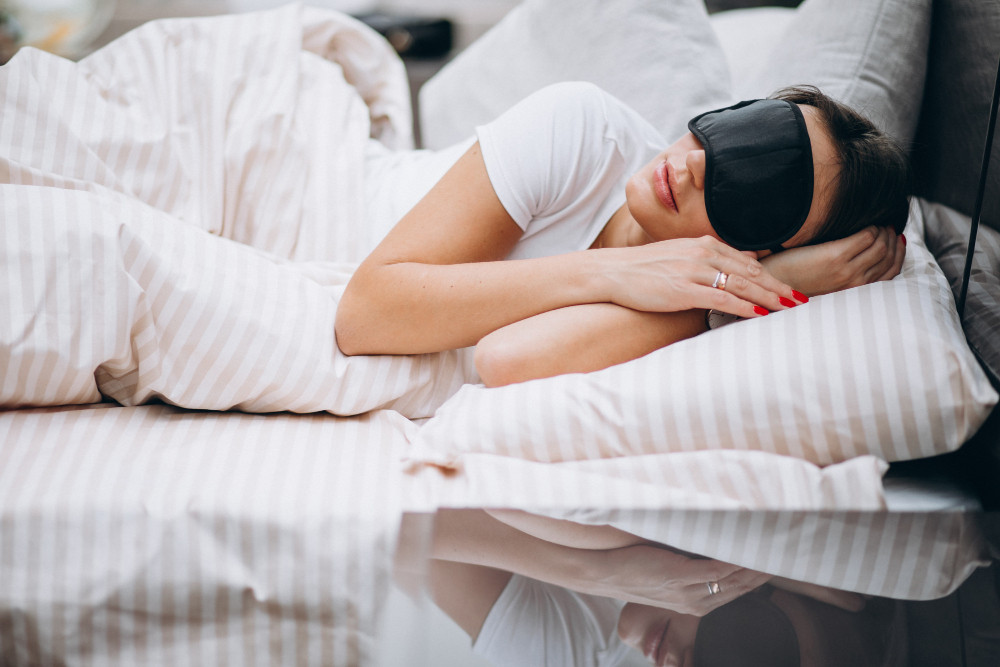Vertigo can be uncomfortable and cause dizziness, even when lying down. This makes it difficult to get a restful sleep.
For those with vertigo, choosing the right sleeping position is essential to alleviate symptoms and prevent severe attacks. In this article, we will explore the best sleeping positions for vertigo patients.
Understanding Vertigo and Its Symptoms
Vertigo is a type of dizziness where a person feels as if their surroundings are spinning. It differs from regular dizziness as it is related to a disorder in the vestibular system, which regulates balance.
Common characteristics of vertigo include:
- A spinning sensation
- Loss of balance
- Nausea and vomiting
- Hearing issues
- Symptoms worsening with movement
- Feeling unsteady while standing or walking
- Cold sweats or intense dizziness
Best Sleeping Positions for Vertigo
Finding a comfortable position for sleeping can help minimize vertigo symptoms and reduce the likelihood of an attack during sleep. Here are some recommended sleeping positions:
Sleep with an elevated head
Raising your head while sleeping can help reduce vertigo symptoms. Keeping your head at least 45 degrees higher can be beneficial. To maintain this position, use multiple pillows or an adjustable bed.
Sleep on your side
Sleeping on your side, particularly on the side that doesn't trigger vertigo, may help reduce symptoms. For instance, if turning your head to the right worsens your vertigo, it's better to sleep on your left side.
Using a supportive pillow can help keep your head and neck aligned with your spine.
Sleep on your back
For some, sleeping on their back may help balance the calcium crystals in the inner ear and prevent fluid buildup that can cause conditions like Meniere's disease.
However, since this position can also trigger vertigo in some people, it’s important to get up slowly in the morning and avoid sudden movements.
Use a specialized pillow
Certain pillows designed for vertigo patients, often U-shaped, can support the head and neck, maintaining a stable sleeping posture throughout the night. These pillows help maintaining a stable sleeping position throughout the night.
It may also help reduce neck and shoulder tension, which can worsen vertigo symptoms.
Creating a Relaxing Sleep Environment
Research indicates that a peaceful sleep environment can play a crucial role in preventing vertigo attacks. Aim for dim lighting, a comfortable room temperature, and a quiet setting. Ensuring a calm atmosphere can help your body relax and prevent sleep disturbances that may trigger vertigo.
If you continue to experience persistent vertigo symptoms despite these methods, it's advisable to consult a doctor for appropriate treatment. You can also use the Ai Care health consultation service, available on the App Store or Play Store.
Want more health tips and tricks, first aid, or home remedies? Click here!
- dr Hanifa Rahma
Jay Summer (2023). Vertigo While Sleeping: Tips and Treatment. Available from: https://www.sleepfoundation.org/physical-health/vertigo-while-sleeping
NHS Inform (2024). Vertigo. Available from: https://www.nhsinform.scot/illnesses-and-conditions/ears-nose-and-throat/vertigo/
Geri K. Metzger (2022). Vertigo. Available from: https://www.webmd.com/brain/vertigo-symptoms-causes-treatment
Better Health. Dizziness, vertigo and balance disorders. Available from: https://www.betterhealth.vic.gov.au/health/conditionsandtreatments/dizziness-and-vertigo
Danielle Pachecho (2024). Bedroom Environment: What Elements Are Important?. Available from: https://www.sleepfoundation.org/bedroom-environment












